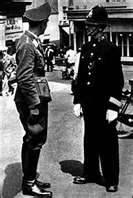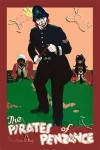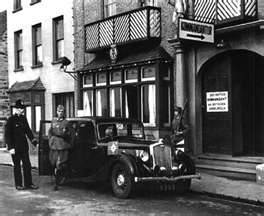
 Were Gilbert & Sullivan right?
Were Gilbert & Sullivan right?
In a show-stopping number in their comic musical The Pirates of Penzance, the policemen’s chorus declares ‘A policeman’s lot is not a happy one.’
The action takes place near the English seaside town of Penzance on the peninsula of Cornwall, scarcely an hour, as the Dornier flies, from the islands of Jersey, Guernsey, Alderney and Sark, which are situated on the ‘French side’ of the English Channel.
English to the core, the Channel Islands were quickly demilitarized and abandoned by the Mother Country. They were too close to Nazi-occupied France and too far from Britain to be defended. This week in the war, on 30 June 1940, German officers flew into Jersey and Guernsey to take charge. The turn of Alderney and Sark followed soon after.
The policeman’s lot on all four islands quickly became ‘not a happy one.’ Plenty of British photos, published after the war (and German propaganda photos, published during), show British policeman performing various acts of deference in the presence of the conquerors. Maybe saluting, or opening a car door—as shown below.
What is it with we Brits and our relationship with our beloved bobbies? Viewed nowadays, the pictures feel a tad weird. Perhaps they offer a taste of how life in Britain might have panned out if Hitler had won the war and the UK been taken over by the enemy.
 The Channel Islands remained occupied until the end of the war, and suffered all of the expected shortages and deprivations. Some islanders were imprisoned, or suffered deportation. Some were murdered in concentration camps.
The Channel Islands remained occupied until the end of the war, and suffered all of the expected shortages and deprivations. Some islanders were imprisoned, or suffered deportation. Some were murdered in concentration camps.
The German occupation of the Channel Islands has been a popular source of inspiration for novelists, including Jack Higgins. His best selling novel The Eagle has Landed is set, in part, in Alderney.
